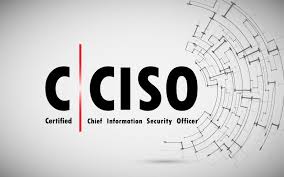Certified Chief Information Security Officer -CISO
The Certified Ethical Hacker (CEH) certification is a leading international certification requiring the competencies of a Professional Hacker. The objective of the certification is to evaluate a person's skills as a capable, up-to-date and self-sufficient security tester. Certification involves passing a challenging examination, requiring knowledge of skills acquired by hacking and assessing the vulnerabilities of systems using a wide range of tools and techniques.
Certified Chief Information Security Officer -CISO
The components of the training program include
• Instructor-led
• 8 hours a day for 5 days
• Class Hours:
The 5-day EC-Council’s Certified Chief Information Security Officer (C|CISO) program is the first of its kind training and certification program aimed at producing top-level information security executives. The C|CISO does not focus solely on technical knowledge but the application of information security management principles from an executive management point of view.


